A long and boring day. The hotel called the genial taxi driver from the previous day and he took us to the Tu-Lu-Fan-Bei (North Turpan) railway station where we passed through strict security and joined a log queue for tickets to Dunhwang. The ticket seller sat behind a thick glass screen (probably bullet-proof) and spoke through a microphone in a deafeningly loud screech to the customers. As we got to the front, Jennifer had the presence of mind to write “two tickets to Dunhwang” and the girl appeared to understand it. However, using her translation device, she told us that there are no direct trains to Dunhwang. We would have to go to Jiayuquan and then get a bus to Dunhwang. All the seats on the train were taken and we would have to get a “station ticket” but she couldn’t explain what this was. I worked out later that it was a mis-translation for “standing ticket”.
A policewoman came over and eventually explained that a “station ticket” would allow us onto the train but we would have to stand up. We paid about £28 for two tickets which compares with $160 for first-class seats on the bullet train. The train left at 9.12 pm and we filled the time by going into a very impressive-looking hotel which calls itself “IBIS-style” but is owned by the Hongshou Group and probably has nothing to do with IBIS. However they were very accommodating and let us sit in the restaurant for 9 hours where we felt obliged to buy a meal. We got a kind of stew with bits of chicken in it including a whole foot. For some reason, Chinese restaurants don’t strip meat from the bone; they simply smash the chicken or sheep up into bits of meat and bone, and it takes longer to extract the bits of bone than it does to eat the meal. A downside of authentic Chinese food. On the other hand it is much more tasty than the English “Chinese” takeaway. I couldn’t help thinking of the lad in the Alrewas Cantonese.
I’m writing this in the so-called IBIS hotel with another 5 hours to go before we board the train, and I can’t help wondering what sort of train we are going to get and how long it will take to get to Jiayuquan. There are 4 classes of train in China: the bullet train, the fast train, the slow train and the ultra-slow train which stops at every little station and carries peasants from one village to another with their sacks of grain, live chickens and the occasional pig. Something to look forward to. At the moment, a party of young people (5 men and 5 women) are eating at a nearby table and, having nudged each other and pointed at us, smiled sweetly. Everyone has been extremely nice to us in China.
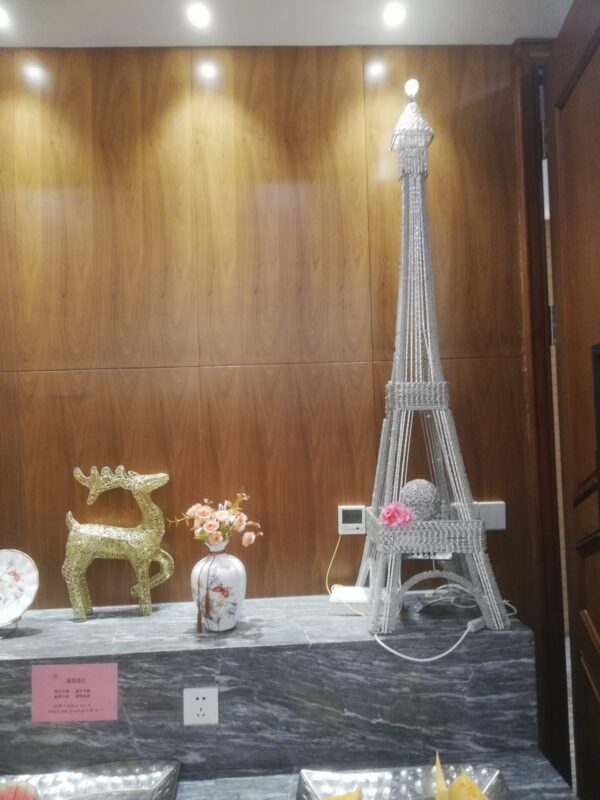
Hotel dining room
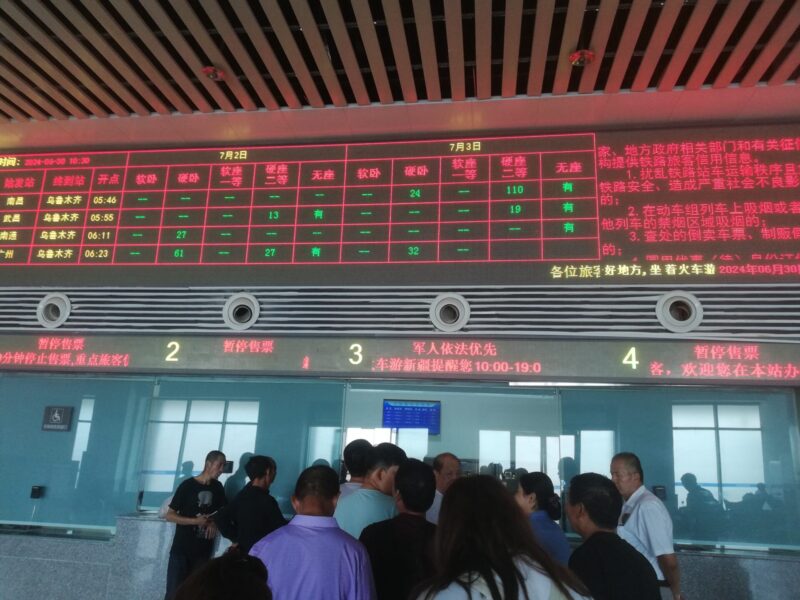
Turpan station. Our train is the first, due to arrive at 05.46. And it did.
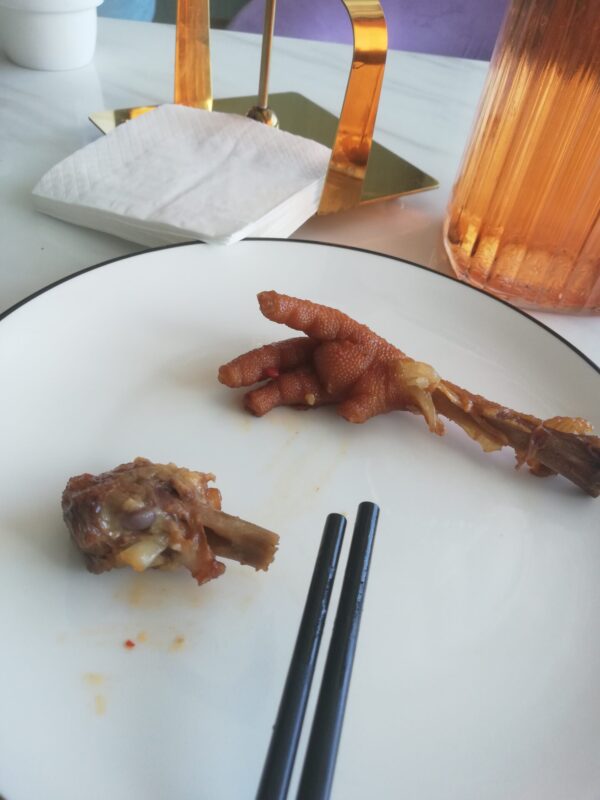
Hens foot in my meal
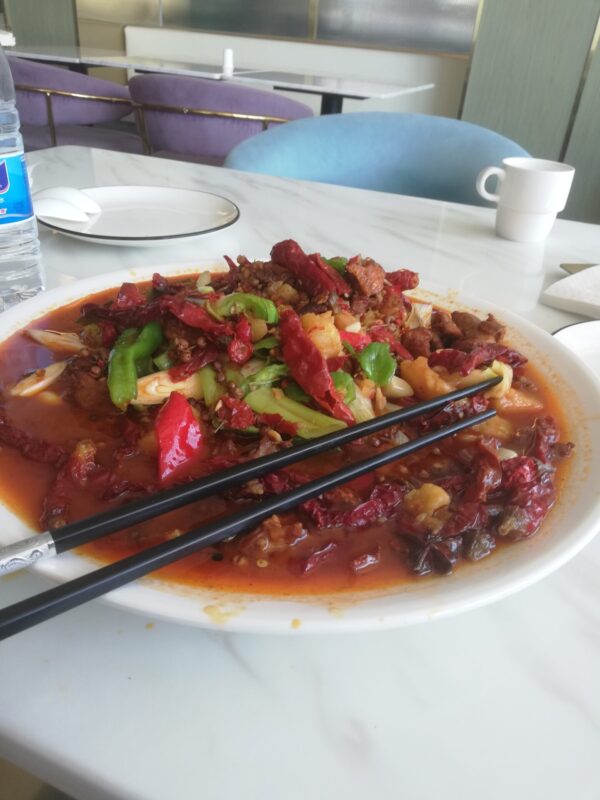
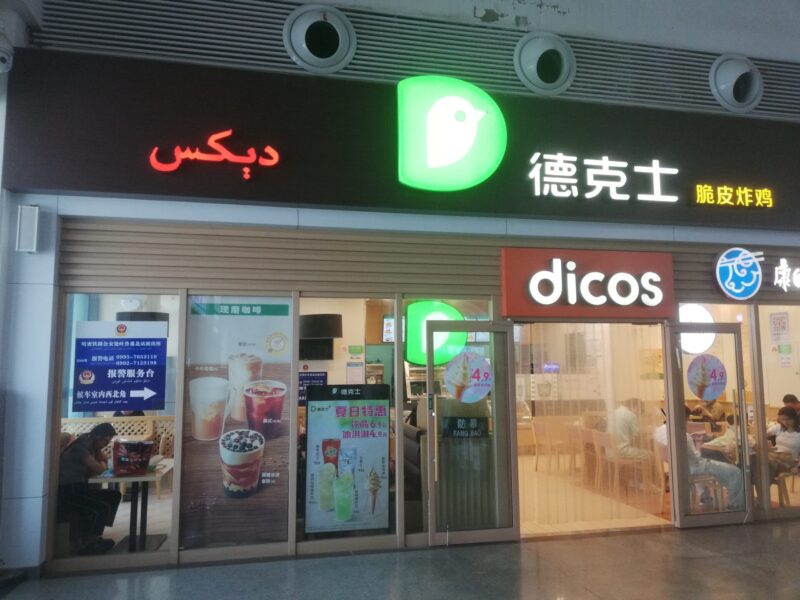
A restaurant in the station. The script on the left is Uighur. The British media (and especially the BBC) keep quoting an American called Adrian Zenz who claims to be an expert on Xinjiang, although he has never been here. He claims that the Uighur language has been “banned” although it appears absolutely everywhere.